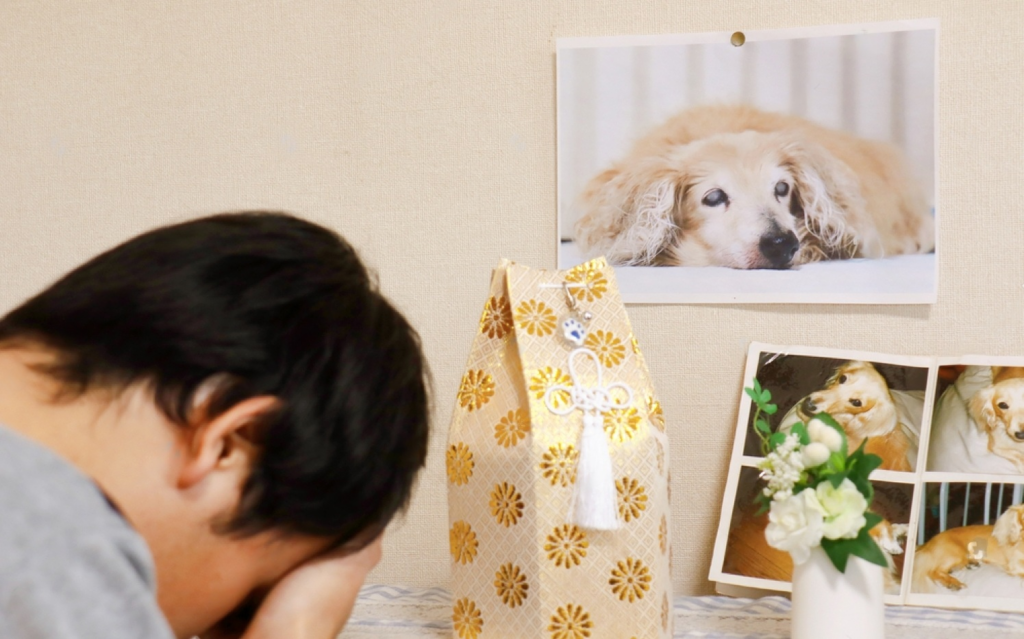In the wake of a terrible loss, many individuals turn to their friends and family for comfort, while others want to be alone with their thoughts and feelings. When a friend is going through a difficult moment, it might enable them to feel more at ease if you know how to provide support. You may learn how to provide the greatest possible care for the griever by first gaining the necessary insight and information, which will allow you to identify the sort of griever that they are.
So, expressing words of consolation to someone who has just lost a pet may be a really helpful gesture. In the end, the appropriate words to say after someone has lost a pet should be adapted according to the circumstances. For example, you might talk about some of the fun times you’ve had with that animal if it’s at all feasible.
Remember that being sensitive, empathetic, and understanding is the most crucial thing there is to keep in mind. Have in mind that even the loss of a pet may be experienced through the phases of grieving and that the effects of the loss may not become apparent immediately away. There are a lot of individuals who first go through shock or denial, and then they eventually break down days or even weeks later.
How To Console Someone Who Has Suffered The Loss Of A Pet

Make yourself heard. You may let someone know that you are thinking about them by sending a meaningful handwritten letter, making a brief tribute on social media, or sending a text message. Or any combination of the aforementioned, depending on how well you know their pet, how close you were to them, or how distraught they are.
Give them reassurance. When a beloved pet passes away, it’s natural to question if you did all in your power to ensure their wellbeing, protect them from harm, and ensure they were as comfortable as possible. Tell your buddy that they provided a good life for their pet in every way.
Allow them some time. Grief over the death of a pet is experienced uniquely by each person. Questions such as “Will you get another dog?” or “Will getting another cat so soon feel like you’re replacing Snowball?” should be avoided. Just be there to support and listen.
Discuss past experiences. Share any photographs you may have of your buddy and their animal companions with the other people. Perhaps you may have them speak about what made their time together so good or listen to them recount anecdotes.
Give Them Assistance That Is Tailored To How They Are Suffering
Finding out how another person handles emotional pain might help you be a better support system for them. According to studies, individuals form considerable attachments to their dogs, cats, and other pets and go through large phases of grieving emotions after the loss of their animal companions.
1. Inward Griever
If a friend of yours exhibits instrumental grieving, it indicates that they are a person grieves from the inside out. People need time and space in order to identify and process the emotions they are experiencing. If they are in need of help, your buddy will get in touch with you.
After the death of a pet, your friend may not want any physical or vocal expressions of sympathy from you; nevertheless, you may still show them that you care in a manner that is less invasive. For instance, you may give resources or information on a local support group for those who have lost pets. You might even email them authentic quotations or poetry about the loss of a loved one. If you give them some suggestions on how to honor the life of their pet or create a monument for their friend, it may help them deal with their feelings.
In other circumstances, individuals could choose to divert their attention elsewhere. If they make contact, offer to participate in a variety of activities with them to assist them in concentrating on the good parts of the situation. It’s possible that your buddy may use humor as well. So you shouldn’t believe that they are trying to play off their previous defeat. The emotional catharsis that one receives through laughing may frequently be comparable to that of sobbing.
Pay attention to and take note of how your buddy is grieving. Then, according to the patient’s preferences, give the highest possible level of care.
2. Outward Griever
An intuitive griever is one who leans on their loved ones and community for love and support during this difficult time. Asking someone to recount memories of their deceased animal companion is one of the most supportive things you can do for an outwardly grieving person. You may also choose to articulate your most cherished recollections in order to demonstrate that you loved their animal companion as well. Let them communicate their feelings. Let them retell their favorite tale a million times if that’s what it takes for them to feel satisfied.
What You Should Say to Console Someone Who Has Lost Their Pet

As quickly as possible, express your condolences and provide your support to a friend or family member who has suffered the loss of a beloved pet. Send them a message or give them a call to find out if they are interested in having a conversation. Be a good listener and let them to discuss what their pet meant to them and how the loss has affected them.
If you have the impression that warm words from you would be appreciated, then you should talk about the good times you had with the animal. It’s okay if you didn’t spend much time getting to know the pet. You don’t need to say a lot as long as what you do say is kind and demonstrates that you care about the situation. Think about using one of the following quotations as a guide for what to say when someone’s pet passes away:
- Everyone who knows [Pet’s name] is going to have a difficult time getting over their loss. They were in every way a unique kind of animal.
- You provided [name of pet] with the most incredible existence. They were quite fortunate by discovering you.
- You and [the name of your pet] had such a unique connection. It was quite evident how much affection they had for you.
- I am incredibly sorry to hear about [name of the pet]. At this challenging time, I will be available for you in any way that you need my assistance.
- I am aware that [pet’s name] will leave a big hole in your house and I am available for you if you have any questions or concerns.
- I am really sorry for the loss you have suffered. We are going to miss [Pet’s name] very much.
- I am aware that [name of pet] was a wonderful friend and companion for you. I am here for you as you go through this challenging time.
- I am truly sorry to hear about the passing of [name of the pet]. I really hope that the happy memories you shared with them will help you find some solace in this difficult time.
- I am aware of how much [insert name of pet] meant to you. They may count themselves really fortunate to have you as their person.
- It is never an easy time when a member of the family passes away. Everyone is going to miss [the name of the pet].
- I am certain that [name of pet] will continue to occupy a special place in your thoughts and feelings. During this difficult time, you are in my thoughts.
- The [Pet’s name] had such a gentle and affectionate spirit. I pray that the memories you have of them will help ease some of the pain you are experiencing at this time.
- You gave [name of pet] the best life you possibly could with the limited amount of time that you had, which is more than most of us can say for our pets.
- Everyone who had the opportunity to interact with [Pet’s name] ended up falling in love with them. They will never be removed from our memories.
- It is never simple to part ways with someone. Sincere condolences on the passing of [name of the deceased pet].
What Should Not Be Spoken or Done
It is not always easy to find the appropriate words to offer consolation to a friend or family who has suffered the loss of a beloved pet. Even actions done with the greatest of intentions may sometimes have the opposite effect of what was intended.
The following are some instances of inappropriate things to say after a pet passes away:
“Do not shed a tear.” Many individuals find that crying helps them through the grief process.
“It’s only a dog [or cat, or whatever]” A statement like this, which trivializes the impact of the loss, is insensitive and inconsiderate. You have no idea how much the animal meant to that individual. “I’m sure you’ll feel better very soon.” Despite the fact that this may be accurate, at this time the individual is experiencing tremendous sadness and feels dreadful. Therefore, you should acknowledge their suffering and offer condolences while maintaining that they are in a better place now. It doesn’t matter how much pain the animal went through; the human is in agony. Neither will it assist to remind them of the anguish their animal companion is experiencing.”
Getting another pet can help you feel better in the long run.” It is impossible to find a replacement for a pet that has passed away, and suggesting otherwise runs the risk of coming across as insensitively trivializing the loss experienced. If and when they feel ready, the individual will obtain another pet for themselves.

